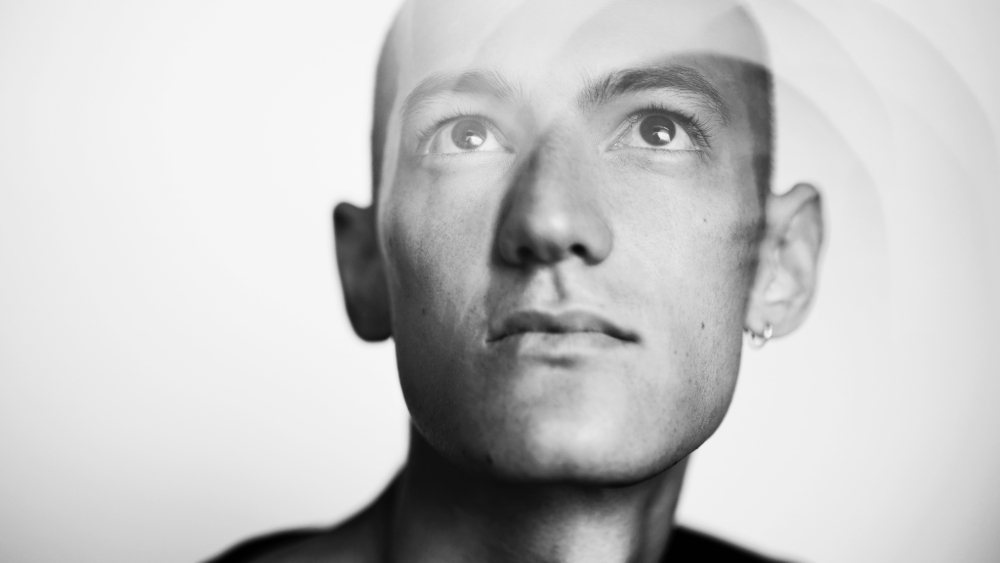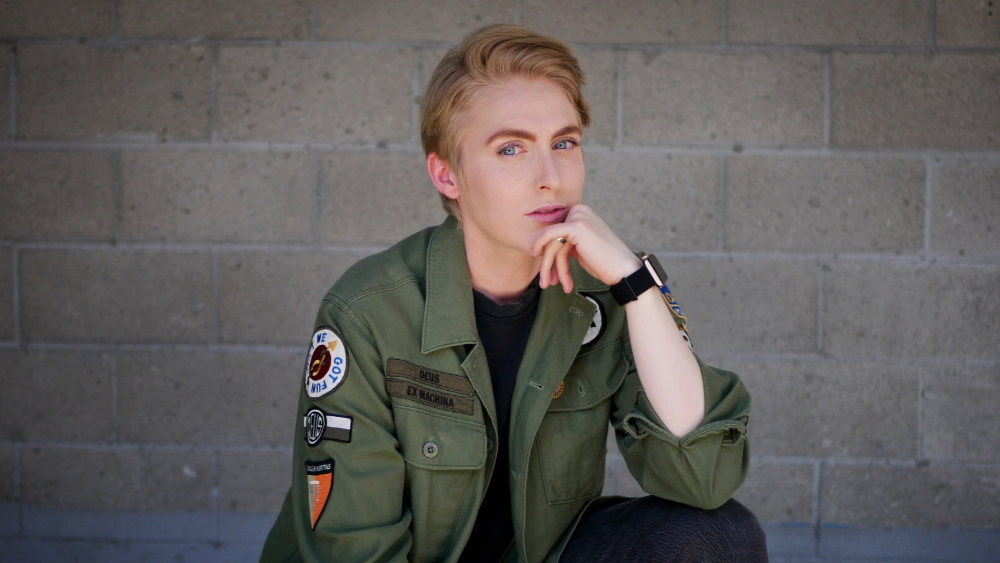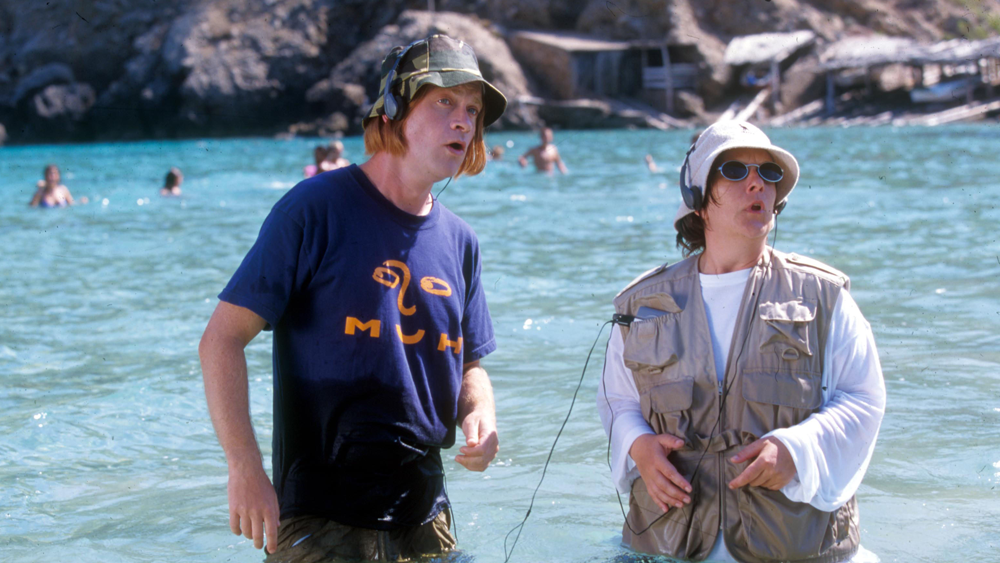Composer duo Aaron May and David Ridley built a sonic world so powerful and intimate with their score for Adolescence that it further strengthened the Netflix crime drama’s astonishing impact. The mini-series inspired nationwide debate about toxic masculinity and was lauded by Sir Keir Starmer, the Prime Minister, who said the show served as ‘a torch that shines intensely brightly on a combination of issues that many people don't know how to respond to’.
‘It feels awesome to be part of the success,’ David tells M about Adolescence, which in March became the first streaming show ever to top the UK TV ratings chart. ‘There’s this validation that art and TV does have the capacity to influence public discourse. We saw it with Mr Bates vs The Post Office and how it helped get justice for those impacted. There was a real-world reaction [to that], and I hope the same will go for Adolescence.’
Aaron and David have formed a tight creative bond with director Philip Barantini over the past five years, with the trio having previously worked together on the films Villain and Boiling Point. But while successful in their own right, those projects have not had the same resonance as the acclaimed Adolescence.
‘This project hit hard emotionally,' says David, offering an insight into the creative process. 'I was crying every other day in the studio and had to take regular breaks. You have to get inside the subject matter to write music that responds to it — it’s almost like a hazard of the job. It’s a wonderful thing to be connected to the work, but you have to try and leave it at the office.’
'Adolescence hit hard emotionally: I was crying every other day in the studio.' - David Ridley
Having first met at university in Bristol, Aaron and David began working together on numerous creative projects, ranging from theatre to installations, sound design and working with prisoners on music. In 2017, a short film titled Kin provided the duo with a chance to write music together.
‘We used Ableton and jammed out a score, recording lots of instrumentation that we were comfortable with as there wasn’t much budget. We loved where the music got to,’ David recalls. ‘Two years later, Philip’s first short film Seconds Out came our way, and it was a no-brainer to come together again. Since then, we haven’t really looked back.’
The typical compositional process for visual media often means that Aaron and David become involved in a project at either the scripting stage or during the edit. Their consistent aim, though, is to develop a distinctive musical language as early as possible.
‘An example would be our first feature, Villain: we knew that two sounds that really resonated with the main character were bass clarinet and cello,’ Aaron explains. ‘From there we wrote thematic material using the harmonic language and melodic motifs.’
The process will often become more streamlined during the edit, with the duo writing cues to specific scenes or points within a film or episode. Their aim is to build a unique sound world to usher the viewer in.
‘Much of our work in the early stages is about trying to define a project’s specific sound,’ says David. ‘This is through choosing instrumentation and listening to references; then we go through this workflow of laddering. This is about collaborating, working with each other and taking the other person’s idea to another level. Once you are psychologically inside a sound world, it’s fun to explore and learn new things as a composer.’
Projects that have greater contact time with the director are the ones the duo have relished the most. ‘We love it when the director is involved in the process, as they tend to act like a filter on the feedback from the executive producers,’ David adds. ‘The more direct that relationship, the more streamlined the process is. We’ve been lucky to work with some brilliant people and production companies for shows on the BBC and Netflix.’
Aaron and David were first brought on board to work on Adolescence in September 2024, just as filming had concluded. ‘Initially, it was to work out if [any] music was even needed,’ Aaron reveals. ‘It then became this intense period of writing. Each project can be different: when you have a lot of time you can sit on ideas, edit and revisit them. When it’s more intense, though, you go into a tunnel and relish working on it — you’re immersed in it.’
Given its gritty realism, sensitive subject matter and stunning one-take filming style, the challenge for Aaron and David was building a sound world that would gel with Adolescence.
‘We had to create a language that supported the narrative but didn’t get in the way of what you’re seeing,’ says Aaron. ‘Emilia Holliday, who plays Katie, the victim in the series, had worked with Phil before and mentioned to him that she enjoyed singing. She sent over some voice notes to us, and we thought it was amazing. There’s so much detail and beautiful imperfections in her voice, and that became the focal point for the score.’
Aaron and David also worked with soprano singer Kate Huggett to create the demo vocals, which helped them understand the role that voice would play within the score, before recording with Emilia. They describe the compositional process as involving a lot of stripping back, with a focus on keeping things simple to avoid distracting from the power of Adolescence’s one-shot.
‘We then had an hour with Emilia, and got her to record these different phrases,’ David explains. ‘When we listened back in the studio, there was a husk, a crackle, a vulnerability — it was even slightly out of tune. We chose to keep everything in so we could build textures around it, using breath as a theme and appropriate instrumentation. We ended up using recorders, organs and harmoniums that all have air going through them, so it’s like a breathing score.’
‘We had to create a language that not only supported the narrative but didn’t get in the way of what you’re seeing.' - Aaron May
Aaron and David see the role of the composer as one who serves and ultimately enhances a project, with the third episode of Adolescence — an ‘incredible hour of flawless television,’ says Aaron — a key example.
‘When it ends, there’s this feeling of disbelief on the part of the viewer,’ he adds. ‘We were writing this cue which brings the episode out. After trying multiple approaches, some more musically forward than others, the one that worked was this piano motif. It was the simplest thing we could write, but it just fit perfectly.’
As well as their work in film and TV, Aaron and David have each released solo albums, and a joint album, titled This Time It’s Always Real, is also in the works. The duo acknowledge the role and support PRS has played in their musical journeys, helping to join the dots between their various projects and opening up previously untapped revenue streams.
‘PRS is invaluable: I’ve no idea how we could collect performance royalties without them,’ says Aaron. ‘It would also take up so much more time that should be spent working as creatives — they are hugely important.’
David agrees: ‘When we’ve had issues with cues being registered incorrectly, we’ve found PRS are very useful at campaigning on your behalf to resolve them. As a creative, it’s so important to have someone supporting you when there are so many obstacles up against us.’
With work on their next project already underway, the impact of Aaron and David’s involvement in Adolescence is still reverberating.
‘There are so many conversations around it due to the genius of the script,’ says David. ‘Ideas around masculinity, the impact of social media on young people, bullying, the British school system — this is why so many people are talking about it. I just hope we helped the emotional language land with the score.
‘It’s been a wild ride since its release, and it’s blown up in a way we never imagined.’
This article features in the latest special edition of M Magazine, which you can read in full here.





